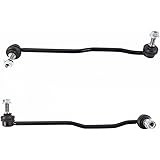GTPLAYER Gaming Chair, Computer Chair with Footrest and Lumbar Support, Height Adjustable Game Chair with 360°-Swivel Seat and Headrest and for Office or Gaming (Faux Leather, Blue)
$129.99 (as of December 3, 2025 14:48 GMT +00:00 - More infoProduct prices and availability are accurate as of the date/time indicated and are subject to change. Any price and availability information displayed on [relevant Amazon Site(s), as applicable] at the time of purchase will apply to the purchase of this product.)Universal life insurance is a great way to get protection for life without worrying about renewals, while also building up cash savings in a tax-advantaged account. As with every insurance policy, it is important to ensure this product is right for you. Working with a broker, who will do a needs assessment and help you structure your best type of policy, is a great way to get the lifelong insurance protection you need. Today we will talk about the pros and cons of universal life insurance and how a broker helps you decide if this, or another, the policy is your best solution.
What is universal life insurance?
Universal life insurance is a type of permanent policy that provides protection without renewal as long as the premiums are paid. It includes a tax-advantaged savings account. The money in this account can be withdrawn, used to enhance the policy, or used as collateral for a loan. Riders can be added depending on the universal insurance company you work with. For example, a critical illness rider provides a tax-free lump sum should you be diagnosed with an ailment listed on, and as described in, the rider. Some critical illness policies protect against what is called the Big 3: cancer, heart attack, and stroke. Others protect against 25 or more issues including kidney failure and severe burns. As you can see, having lifelong insurance in place with the combination of a rider for living benefits can give you a lot of affordable peace of mind!
Universal life insurance – pros
Term insurance premiums (with the exception of Term 100) increase every year and eventually get to the place where they can be prohibitively expensive. What costs just around $30 dollars a month for term insurance in your early 30s can soar into the hundreds when you renew in your 50s or 60s. Even worse, the best term rates are tied to age and health. Any decline in health (obesity, diabetes, high blood pressure, etc.) will push those rates up even higher. This is where universal life insurance has a big advantage. Once your premium range is set, that’s it. You don’t need to renew, you don’t need to requalify, and health issues you may develop during the course of your coverage don’t impact your in-force policy.
Another aspect to consider when discussing universal life insurance pros and cons is the policy’s flexibility. Since there is a savings account, the premium is split between the cost of insurance and the savings portion. You’ll be given a premium range. The minimum number covers the cost of insurance, the higher number puts the excess into your savings account but not at a rate that trips the MTAR (Maximum Tax Actuarial Reserve – aka, the amount you can save in the policy’s cash account before you attract tax.) As long as your cost of insurance is covered, the policy remains in force, so if you have an extra expense one month – as your water heater goes – you can help save your budget by putting in the minimum that month on your premium.
A major universal life insurance pro is the cash savings account. You can let the cash build up then use it to support the policy’s payments (the policy ends when payments end, so be careful with this strategy), withdraw the cash, and more.
Universal life insurance – cons
There are some drawbacks, namely, the expense. Universal life insurance quotes are higher than terms. Even though, if purchased early, the cost savings over the life of the policy can more than offset the difference, if you are looking for term vs universal during your 30s and 40s, universal is going to be higher. There is an easy way around this – purchase universal life insurance when you are young and healthy. Even though a universal life insurance quote in your 20s will still be higher than the term, you’ll lock in a great rate that will save you hundreds later on, and you also have a longer time horizon to enjoy the interest in your cash savings account.
A second drawback is that cash savings account. With whole life insurance, interest rates are guaranteed. With universal life insurance, they are not. This means you could potentially have a loss instead of again.
A final thing to watch for with universal life insurance is lapsing the policy. If you are structured to use the cash to support the premium at some point, but you have withdrawn from the cash account, your policy will lapse if the money runs out. Be sure to stay on top of how much is in your cash account if you are set up to use this method, and remember, once the coverage lapses, you are not covered.
Where to find a universal insurance company
Working with a qualified and licensed professional is paramount; always consult directly with an agent or broker with direct access to a universal insurance company when setting up your policy. To best determine your premium range, your MTAR limit, and if you will use the savings to support the policy, you need professional advice. Universal life insurance policies are very nuanced and can be structured in a variety of ways, so we recommend speaking to a broker.
Brokers are like the freelance agents of the insurance world. They don’t just sell the policies of one company, they have access to all of the universal life insurance Canada companies. They learn your long-term insurance and savings objectives then shop the market for you to find the best universal life insurance quote for your situation.



